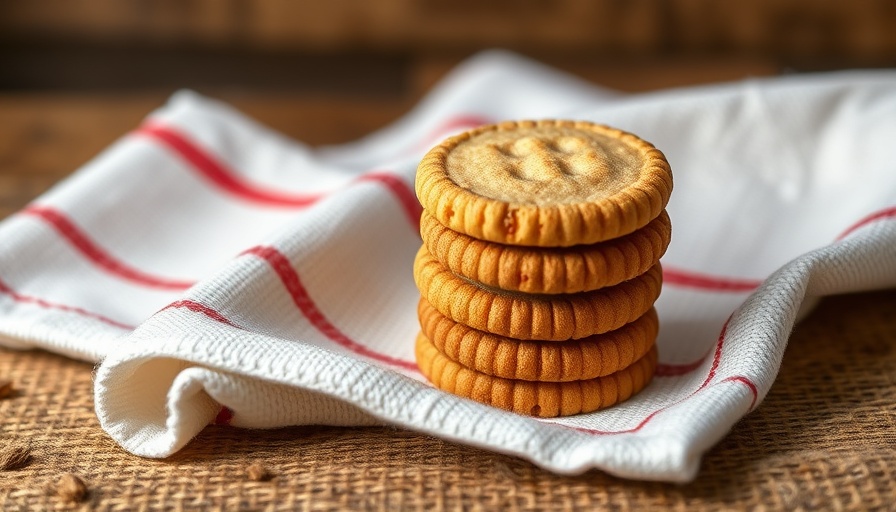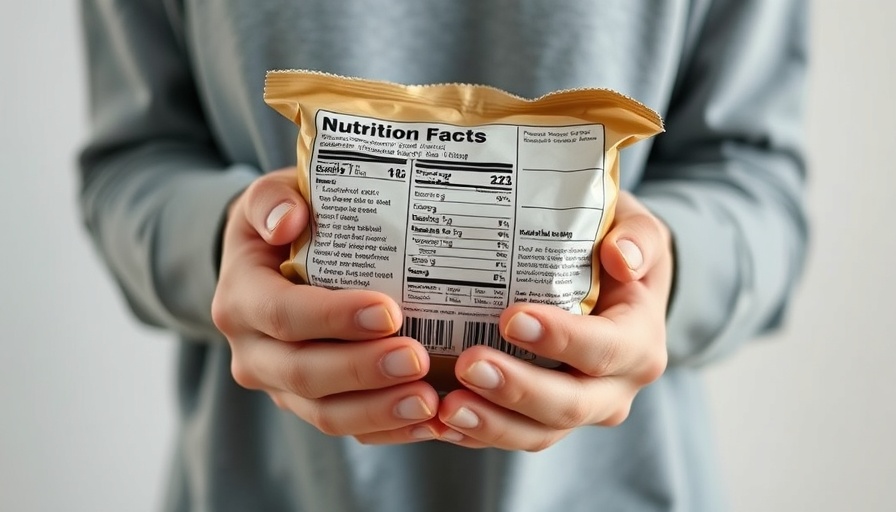
Digestive Biscuits: Treat or Trick?
Digestive biscuits have been a staple of tea time for many, celebrated for their so-called health benefits. But as consumers become more health-conscious, the question remains: Are these biscuits as healthy as they claim? Let's dig deeper into the reality versus the marketing hype surrounding digestive biscuits.
What's Inside Digestive Biscuits?
Digestive biscuits are primarily made from wholemeal wheat flour, containing around 85% white flour mixed with 15% fine bran. This composition is often touted for its ability to aid digestion—hence the name. Flavors vary from chocolate-coated to citrus-infused, appealing to a broad range of tastes.
The Gluten Dilemma and Allergies
As much as digestive biscuits are marketed as a healthier alternative, they contain gluten, which can pose risks for individuals with gluten sensitivity or wheat allergies. Symptoms such as bloating, diarrhea, and even serious reactions in allergy sufferers make it crucial to choose gluten-free alternatives if needed. Ingredients like rice flour or coconut flour offer suitable substitutes, allowing those with dietary restrictions to still enjoy these snacks.
Added Sugars: The Hidden Threat
Many digestive biscuits fall into the category of semi-sweet foods, packed with added sugars which, when overconsumed, can lead to various health issues such as obesity and heart disease. Women should aim for added sugars totaling no more than 100 calories daily, and for men, the limit is 150 calories. With some biscuits containing up to 5 grams of sugar per serving, it's easy to consume a significant portion of your daily limit without realizing it.
Are There Healthier Alternatives?
If you're looking to cut back on sugar, there are options like low-sugar digestive biscuits with only around 1.7 grams of sugar per serving. However, the key is moderation. It's suggested to swap out biscuits for healthier snacks such as nuts or veggie sticks to promote overall health.
Understanding Natural vs. Added Sugars
Confusion often arises regarding the types of sugars in our foods. While naturally occurring sugars found in fruits and dairy are generally safe, added sugars can be misleading. Some products might label their sweetness as “maple syrup” or “agave nectar,” which can still contribute significantly to your daily sugar intake, making label reading essential in your quest for healthy snacks.
Practical Tips for Incorporating Digestive Biscuits Wisely
When enjoying digestive biscuits, consider moderation. Instead of viewing them as a guilt-free snack, regard them as a treat to enjoy occasionally. Pay attention to serving sizes, and always check nutritional labels to avoid surprises with added sugars. Mindful consumption can transform your experience with these biscuits from a potential health risk to a delightful addition to your diet.
Final Thoughts
Digestive biscuits can be a part of a balanced diet, especially if you choose low-sugar options and maintain portion control. While they come with their set of benefits and drawbacks, being informed and conscious about your choices allows for healthier living. Looking after your health doesn’t have to mean missing out on the little pleasures—enjoy your digestives wisely!
 Add Row
Add Row  Add
Add 




 Add Row
Add Row  Add
Add 

Write A Comment